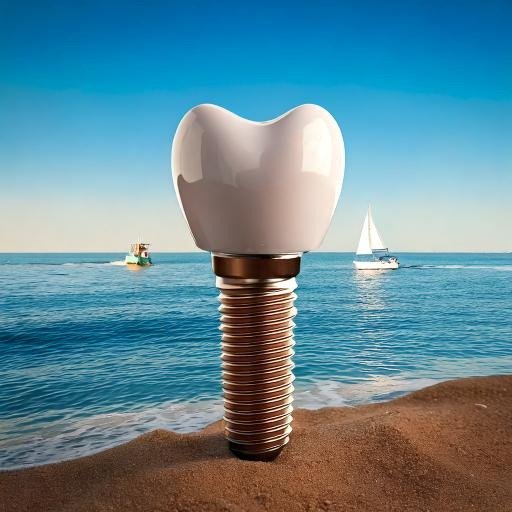Dental implants are one of the most effective and long-lasting solutions for replacing missing teeth, but what if you have gum disease? Many patients with gum disease worry about whether they’re eligible for implants. Understanding how gum disease in Horley can impact dental implant success is key to ensuring the best outcomes for your oral health. In this article, we’ll explore the relationship between gum disease and dental implants, explain what steps to take before implant surgery, and discuss how to maintain healthy gums after the procedure.
Can You Have Dental Implants with Gum Disease in Horley?
Yes, it is possible to have dental implants if you have gum disease, but treatment and careful management of the condition are essential before undergoing implant surgery. Gum disease, or periodontal disease, can cause inflammation, infection, and the destruction of gum tissue and bone. Because dental implants rely on healthy gums and sufficient bone density for support, untreated gum disease can jeopardize the success of the procedure.
For residents seeking solutions for gum disease in Horley, there are advanced treatments available to help control the condition and restore gum and bone health. Addressing gum disease before implant placement ensures the best possible outcome and reduces the risk of complications such as implant failure.
What Is Gum Disease and How Does It Affect Implants?
Gum disease, also known as periodontal disease, is an infection of the gums caused by bacteria in plaque. There are two main stages of gum disease:
- Gingivitis – The early stage, characterized by red, swollen, and bleeding gums.
- Periodontitis – The advanced stage, where the infection spreads below the gumline, causing bone and tissue loss.
Dental implants require a stable foundation, and gum disease can weaken the bone and soft tissue that support the implant. If left untreated, gum disease can lead to:
- Bone loss: The implant requires adequate bone for stability. Gum disease can cause the bone to deteriorate, reducing the chances of successful osseointegration (the fusion of the implant with the jawbone).
- Gum recession: Gum disease can cause the gums to pull away from the teeth, exposing the implant and making it more susceptible to infection.
- Increased infection risk: Active gum disease can cause peri-implantitis, a condition similar to periodontitis that affects the tissues around the implant, potentially leading to implant failure.
Understanding the severity of gum disease in Horley and addressing it early is essential to ensure a strong foundation for dental implants.
Assessing Gum Health Before Dental Implant Surgery
Before undergoing dental implant surgery, your dentist or periodontist will assess the health of your gums and jawbone. This evaluation is crucial to determine whether you’re a suitable candidate for implants and what pre-treatment may be necessary.
1. Comprehensive Examination
Your dentist will perform a thorough oral examination to check for signs of gum disease, such as swelling, redness, bleeding, or pocketing around the teeth. They may also measure the depth of periodontal pockets, which are spaces between the teeth and gums where bacteria accumulate.
2. X-rays and CBCT Scans
Imaging tests such as X-rays or CBCT (Cone Beam Computed Tomography) scans are used to evaluate the bone density and structure of your jaw. These scans help determine if there is enough bone to support an implant or if a bone graft will be required.
3. Medical History Review
Certain medical conditions, such as diabetes, can impact your gum health and the success of dental implants. Your dentist will review your medical history and discuss any lifestyle factors, such as smoking, that could affect the procedure.
Assessing the extent of gum disease in Horley ensures a tailored treatment plan to prepare your mouth for successful dental implants.
Steps to Treat Gum Disease Before Getting Implants
If you have gum disease, it’s crucial to treat the condition before proceeding with dental implants. Here are the typical steps involved in managing gum disease:
1. Scaling and Root Planing
This deep cleaning procedure removes plaque and tartar from below the gumline and smooths the tooth roots to encourage the gums to reattach to the teeth.
2. Antibiotic Therapy
Your dentist may prescribe antibiotics to help control the infection and reduce inflammation. These can be administered orally or directly into the periodontal pockets.
3. Bone Grafting
If gum disease has caused significant bone loss, a bone graft may be required to restore the jawbone’s volume and density. This procedure involves adding bone material to the affected area to create a stable foundation for the implant.
4. Gum Grafting
In cases of severe gum recession, gum grafting may be necessary to restore the gumline and protect the implant site.
5. Maintenance Care
Once gum disease has been treated, ongoing maintenance is essential. This includes regular dental check-ups, professional cleanings, and a strict oral hygiene routine to prevent a recurrence.
By addressing gum disease in Horley with these treatments, you can create the ideal environment for dental implants and ensure their long-term success.
Dental Implants vs. Bridges for Patients with Gum Disease
For patients with gum disease, the choice between dental implants and bridges depends on the severity of the condition and the health of the surrounding teeth and gums.
Advantages of Dental Implants
- Long-term solution: Implants are a permanent replacement option when properly maintained.
- Preservation of bone health: Implants stimulate the jawbone, preventing bone loss over time.
- Independence: Unlike bridges, implants don’t rely on adjacent teeth for support.
Advantages of Bridges
- Shorter treatment time: Bridges don’t require surgery and can be completed in a few visits.
- No impact on gum health: Bridges may be a better option for patients with extensive gum disease who cannot undergo implant surgery.
Discussing your options with a professional experienced in treating gum disease in Horley will help determine the best solution for your needs.
Maintaining Your Dental Implants with Healthy Gums
Once you’ve received dental implants, keeping your gums healthy is essential for their longevity. Here are some tips for maintaining healthy gums:
- Brush Twice a Day: Use a soft-bristled toothbrush to clean around the implant and gumline.
- Floss Daily: Use floss or interdental brushes to clean between the teeth and around the implant.
- Use Antimicrobial Mouthwash: This helps reduce bacteria and prevent infections.
- Attend Regular Check-ups: Regular dental visits are vital to monitor the health of your implants and gums.
By following these steps, you can prevent peri-implantitis and ensure the success of your dental implants.
How Gum Disease in Horley Is Treated
Residents dealing with gum disease in Horley can access a range of advanced treatments designed to restore gum health and improve oral function. Treatment options include:
- Non-surgical periodontal therapy: Deep cleaning procedures to remove plaque and tartar.
- Surgical options: Bone grafting, gum grafting, and flap surgery for severe cases.
- Laser therapy: A minimally invasive option for treating gum disease.
Early intervention is key to managing gum disease and ensuring that patients can benefit from procedures like dental implants.
By addressing gum disease in Horley with proper treatment and maintenance, you can achieve successful results with dental implants and enjoy a healthier, more confident smile.





